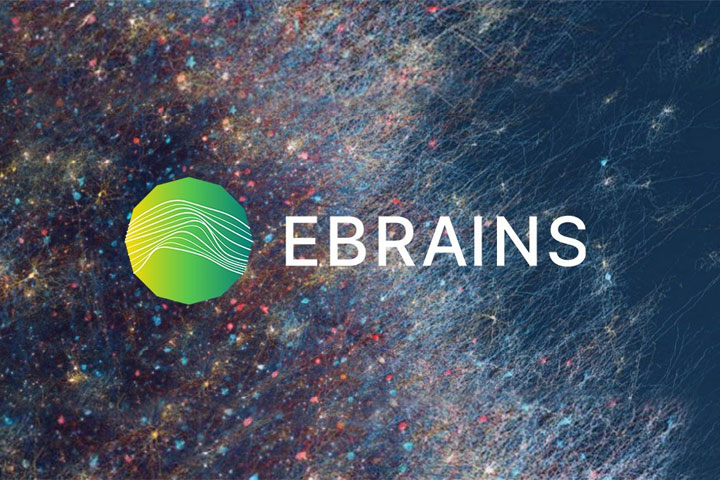
The University of Bordeaux joins EBRAINS
Source : https://www.u-bordeaux.fr/en/
The University of Bordeaux, which boasts a large community of neuroscientists as well as researchers in digital science and technology, has joined the European research infrastructure EBRAINS as an associate member.
EBRAINS – for European Brain ReseArch INfrastructureS – is a digital research infrastructure funded in part by the European Union. The consortium brings together, and makes available to its partners, a wide range of data and tools for brain research. The University of Bordeaux, which has been an associate member of the consortium since 2022, can provide data and co-design future versions of the cutting-edge tools and services offered by EBRAINS. This infrastructure stems from the organisation of the brain and artificial intelligence gathered as part of the Human Brain Project.

Marc Joliot, a CEA researcher at the Institute of Neurodegenerative Diseases (IMN, a CNRS and University of Bordeaux unit – Bordeaux Neurocampus), member of the scientific council of the French EBRAINS cluster and representative of the university within the EBRAINS general assembly, explains the importance of this collaboration.
Why join EBRAINS?
“It is important to position ourselves in this European digital research infrastructure. EBRAINS enables us to influence the scientific strategy of the national cluster and the European infrastructure, through representation on national and European decision-making bodies. By participating in responses to Horizon Europe calls for proposals, the consortium is a recognised international supporter. Today, the University of Bordeaux’s objective is to attract researchers who have well-developed projects and who are technically ready to participate in the EBRAINS platform. By integrating this infrastructure, European research projects could be launched: ifwe want to give ourselves the means to achieve our ambitions, to promote brain-related research, we need to position ourselves together.”
What tools are available on the platform and for whom?
“Scientists using neuroimaging, high-performance computing and neurorobotics may be interested in EBRAINS’ proposals. Joining the consortium will create opportunities for co-designing future innovations in computing and tools. For example, I have already submitted brain atlases to the consortium. Another advantage is that we have access to cutting-edge computers that are being used by other international partners. Software developed in the associated laboratories can be accessed to help European scientists in high-performance computing and neuroscience by providing them with data, models and simulations. Joining the EBRAINS programme can only be beneficial, whether the scientists are from digital sciences and technologies, neurosciences, etc.”.
What are the main objectives of EBRAINS?
- Maintain existing infrastructures and resources, and above all, improve them and develop new ones in a field that is constantly evolving and highly competitive on an international scale.
- Provide access to analysis and calculation resources for a very large scientific community, including neuroscientists of course, but also doctors, computer scientists, specialists in information sciences and brain-machine interfaces, as well as roboticists.
- Support the development of major projects in the field of experimental, computational and clinical neuroscience, on a European scale, and thus respond to major health challenges such as ageing, neurological and psychiatric diseases.
Resources:
Contact
Marc Joliot
CEA researcher at IMN
EBRAINS University of Bordeaux representative
Last update 22/11/23
